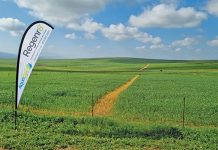Red meat prices continue to rise despite the recession, but farmers must remain vigilant because the recession hasn’t run its course yet.
So warned Prof Johan Willemse, agricultural economist at the University of the Free State, speaking at a recent Northern Cape Red Meat Producers Organisation (RPO) congress in Kimberley. He reckons it’ll take three to four years before an upswing.
“Local mutton prices are now on import parity at R32/kg and some expect the price to increase to between R35/kg and R36/kg,” he said. “Australian sheep numbers have decreased from 100 million to 70 million, but they still realised the highest mutton prices ever through exports to the East.”
According to the Meat & Livestock Australia website, the national mutton indicator reached AU,06/kg carcass weight (R19,33/kg).
South African red meat producers must, however, realise that the retail food sector is extremely concentrated, Prof Willemse cautioned. “It’s dominated by four main chains – Pick ‘n Pay, Shoprite/Checkers, Woolworths and Spar – jointly controlling 94,5% of the retail food market in South Africa. Farmers must, therefore, proactively start working on regaining their leveraging power in the market via a system of farmer-owned businesses.”
Also speaking at the congress was Anton van Rensburg, executive of the Association of Meat Importers and Exporters (Amie). He said there’s an increasing demand for cheap meat cuts in South Africa. “There is a shortage of breast and flank meat, and we have to import to supply the demand. I’d advise red meat producers to supply more of these cuts to the local market and to explore the export market for the more expensive cuts such as fillet.”
Otherwise, he said, consumers will move on to other protein sources, such as chicken.
He cautioned producers to be aware that red meat consumption is declining in South Africa. “Five to six years ago, every main meal served on the mines included beef. Nowadays, the demand for chicken is growing and we have to keep importing the cheaper cuts [of red meat].”
He also warned that the 40% import tariff on meat imports in South Africa isn’t sustainable.
“Most of our competitors [who import meat into South Africa] aren’t subsidised. Let us follow the example of Ireland which has taken over the European red meat market without any subsidies.” – Annelie Coleman
Higher red meat prices might not last
Red meat prices continue to rise despite the recession, but farmers must remain vigilant because the recession hasn’t run its course yet.
| Read more |
|








